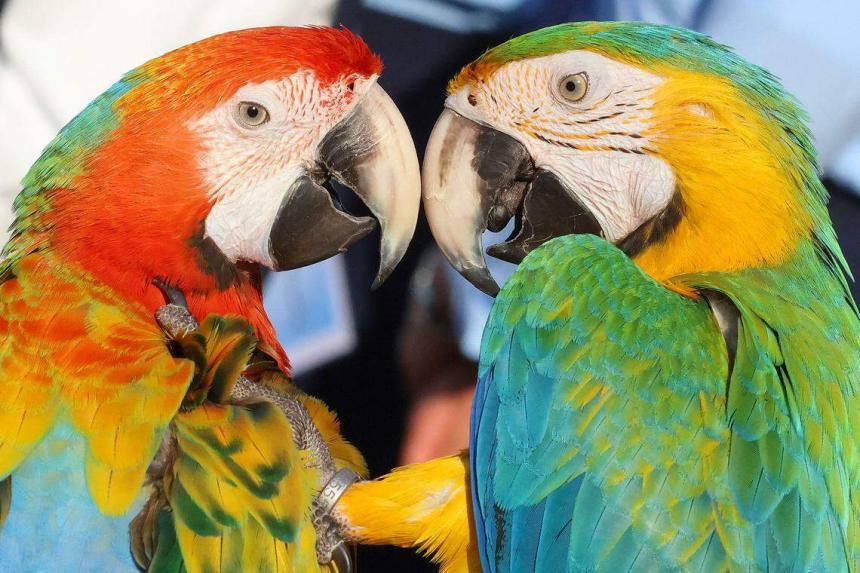Humans are not the only ones who feel lonely. Some animals like parrots do too, and to feel less lonely, what do they do? Video call another parrot.
This was revealed during a three-month study, which found that pet parrots that are allowed to make video calls to each other show signs of feeling less isolated.
The birds also began to engage in more social behaviour such as singing, preening and play, according to researchers from Scotland and the United States.
Co-author of the research, Dr Ilyena Hirskyj-Dougla at the University of Glasgow, said that video calls have helped many people feel less isolated during the Covid-19 pandemic.
She added: “There are 20 million parrots living in people’s homes in the USA, and we wanted to explore whether those birds might benefit from video calling too. If we gave them the opportunity to call other parrots, would they choose to do so, and would the experience benefit the parrots and their caregivers?”
The study, which analysed more than 1,000 hours of footage of 18 pet parrots, suggested that the birds may have benefitted from making new feathered friends over the Internet.
As part of the study, the birds were given a touchscreen tablet to make video calls and could choose which “friend” to call. Those that called other parrots most often were found to be the most popular choices.
Unlike many species of parrots that live in large flocks in the wild, pet parrots tend to live in a small group or be kept alone. Boredom and isolation can cause birds to develop psychological problems. These problems can manifest as pacing back and forth, rocking or self-harming behaviours such as feather-plucking.
Video calling could also reproduce some of the social benefits of living in a flock, the scientists suggested.
“I was quite surprised at the range of different behaviours,” said Dr Hirskyj-Douglas in a report in The Guardian newspaper. “Some would sing, some would play around and go upside down, others would want to show another bird their toys.”
The parrots in the study were recruited from users of US-based Parrot Kindergarten, an online coaching and educational programme for parrots and their owners.
The birds were taught how to touch a photo of another parrot on the tablet’s screen to make a call, with the help of their owners.
During the study, the parrots made 147 deliberate calls to each other while owners took detailed notes on their pets’ behaviour. The researchers later reviewed the video footage.
Dr Jennifer Cunha, another co-author of the study, said that the parrots “seemed to grasp” that they were engaging with other birds as their behaviour mirrored that seen during real-life interactions between parrots.
“We saw birds learn to forage for the first time, and one caregiver reported that their bird flew for the first time after making a call,” said Dr Cunha, who is from the US Northeastern University and co-founder of Parrot Kindergarten.
“All the participants in the study said they valued the experience and would want to continue using the system with their parrots in the future.”
Dr Hirskyj-Douglas added: “The animal Internet is already here – there are hundreds of products on the market that let pet owners interact with their animals remotely over the net, but their design is primarily focused on what humans want, not what their pets need.”
The paper was published in the Proceedings of the 2023 CHI Conference on Human Factors in Computing Systems on Wednesday. The research is set to be presented as a paper at the ACM Conference on Human Factors in Computing Systems in Germany next Monday.


